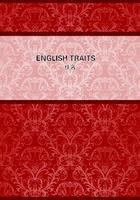
第45章
When every noble was a soldier, they were carefully bred to great personal prowess. The education of a soldier is a simpler affair than that of an earl in the nineteenth century. And this was very seriously pursued; they were expert in every species of equitation, to the most dangerous practices, and this down to the accession of William of Orange. But graver men appear to have trained their sons for civil affairs. Elizabeth extended her thought to the future; and Sir Philip Sidney in his letter to his brother, and Milton and Evelyn, gave plain and hearty counsel. Already too, the English noble and squire were preparing for the career of the country-gentleman, and his peaceable expense. They went from city to city, learning receipts to make perfumes, sweet powders, pomanders, antidotes, gathering seeds, gems, coins, and divers curiosities, preparing for a private life thereafter, in which they should take pleasure in these recreations.
All advantages given to absolve the young patrician from intellectual labor are of course mistaken. "In the university, noblemen are exempted from the public exercises for the degree, &c., by which they attain a degree called _honorary_. At the same time, the fees they have to pay for matriculation, and on all other occasions, are much higher." (* 4) Fuller records "the observation of foreigners, that Englishmen, by making their children gentlemen, before they are men, cause they are so seldom wise men." This cockering justifies Dr. Johnson's bitter apology for primogeniture, "that it makes but one fool in a family."(* 4) Huber. History of English Universities.
The revolution in society has reached this class. The great powers of industrial art have no exclusion of name or blood. The tools of our time, namely, steam, ships, printing, money, and popular education, belong to those who can handle them: and their effect has been, that advantages once confined to men of family, are now open to the whole middle class. The road that grandeur levels for his coach, toil can travel in his cart.
This is more manifest every day, but I think it is true throughout English history. English history, wisely read, is the vindication of the brain of that people. Here, at last, were climate and condition friendly to the working faculty. Who now will work and dare, shall rule. This is the charter, or the chartism, which fogs, and seas, and rains proclaimed,--that intellect and personal force should make the law; that industry and administrative talent should administer; that work should wear the crown. I know that not this, but something else is pretended. The fiction with which the noble and the bystander equally please themselves is, that the former is of unbroken descent from the Norman, and so has never worked for eight hundred years. All the families are new, but the name is old, and they have made a covenant with their memories not to disturb it. But the analysis of the peerage and gentry shows the rapid decay and extinction of old families, the continual recruiting of these from new blood. The doors, though ostentatiously guarded, are really open, and hence the power of the bribe. All the barriers to rank only whet the thirst, and enhance the prize. "Now," said Nelson, when clearing for battle, "a peerage, or Westminster Abbey!" "I have no illusion left," said Sydney Smith, "but the Archbishop of Canterbury." "The lawyers," said Burke, "are only birds of passage in this House of Commons," and then added, with a new figure, "they have their best bower anchor in the House of Lords."Another stride that has been taken, appears in the perishing of heraldry. Whilst the privileges of nobility are passing to the middle class, the badge is discredited, and the titles of lordship are getting musty and cumbersome. I wonder that sensible men have not been already impatient of them. They belong, with wigs, powder, and scarlet coats, to an earlier age, and may be advantageously consigned, with paint and tattoo, to the dignitaries of Australia and Polynesia.
A multitude of English, educated at the universities, bred into their society with manners, ability, and the gifts of fortune, are every day confronting the peers on a footing of equality, and outstripping them, as often, in the race of honor and influence.
That cultivated class is large and ever enlarging. It is computed that, with titles and without, there are seventy thousand of these people coming and going in London, who make up what is called high society. They cannot shut their eyes to the fact that an untitled nobility possess all the power without the inconveniences that belong to rank, and the rich Englishman goes over the world at the present day, drawing more than all the advantages which the strongest of his kings could command.